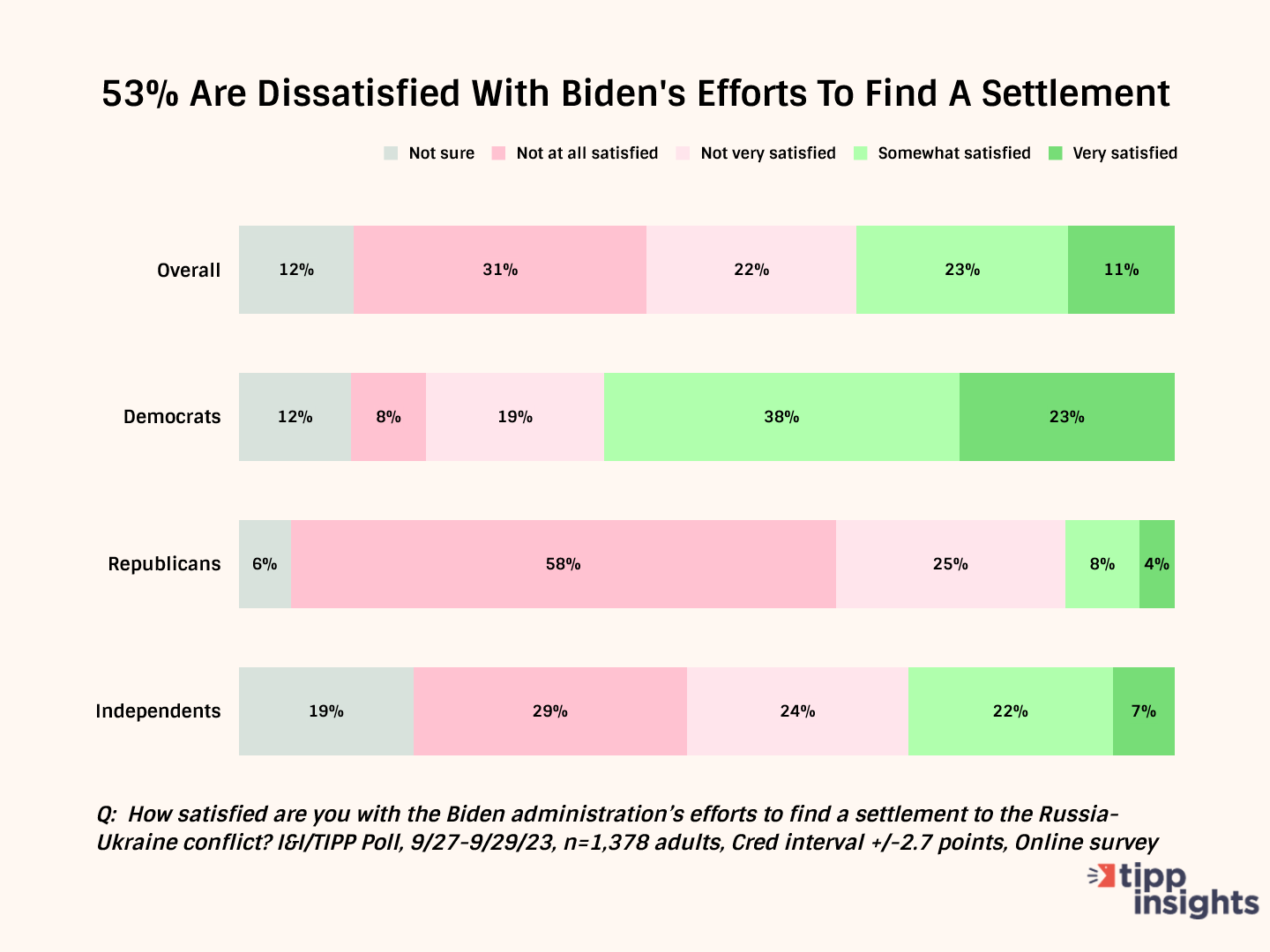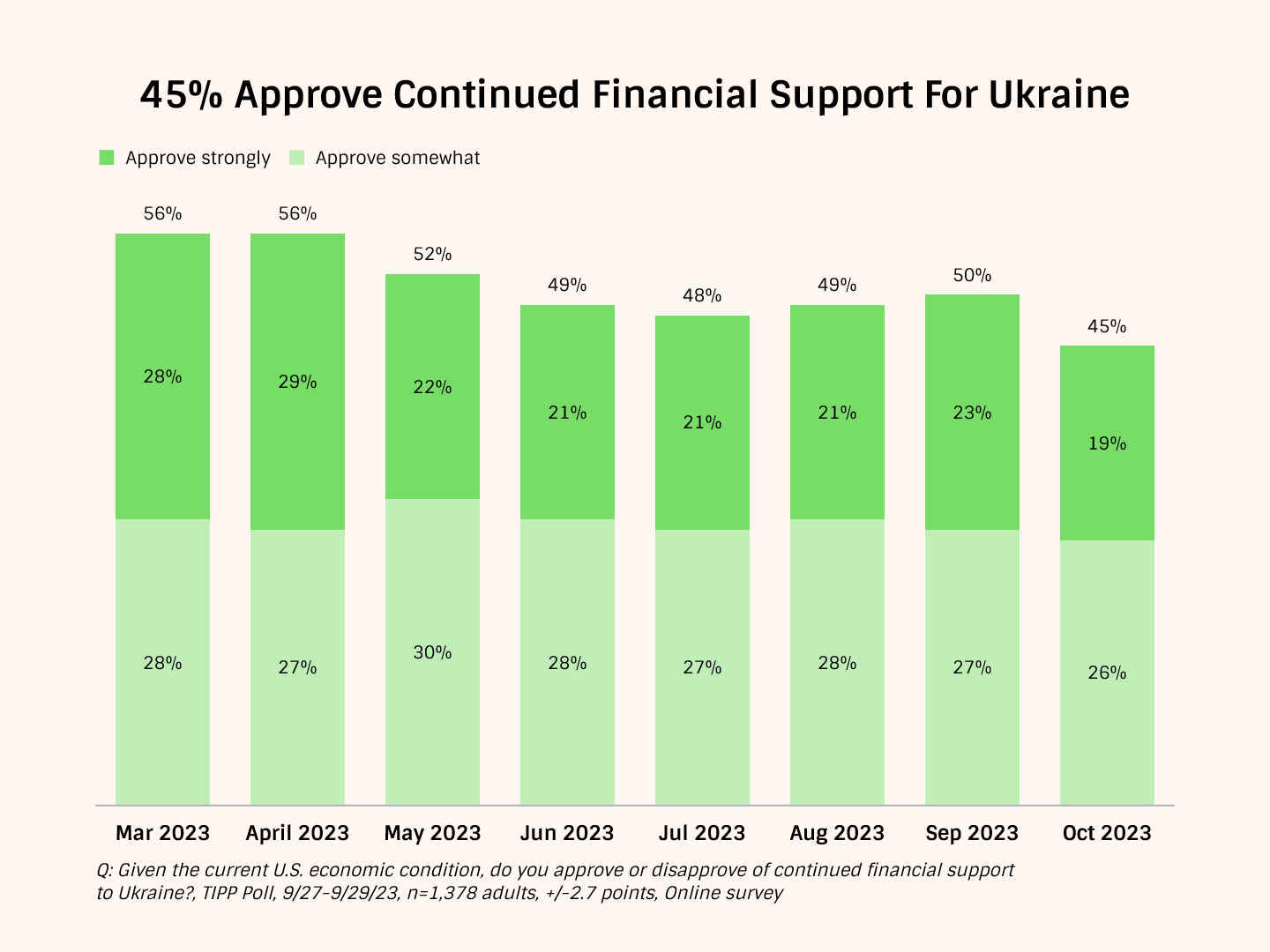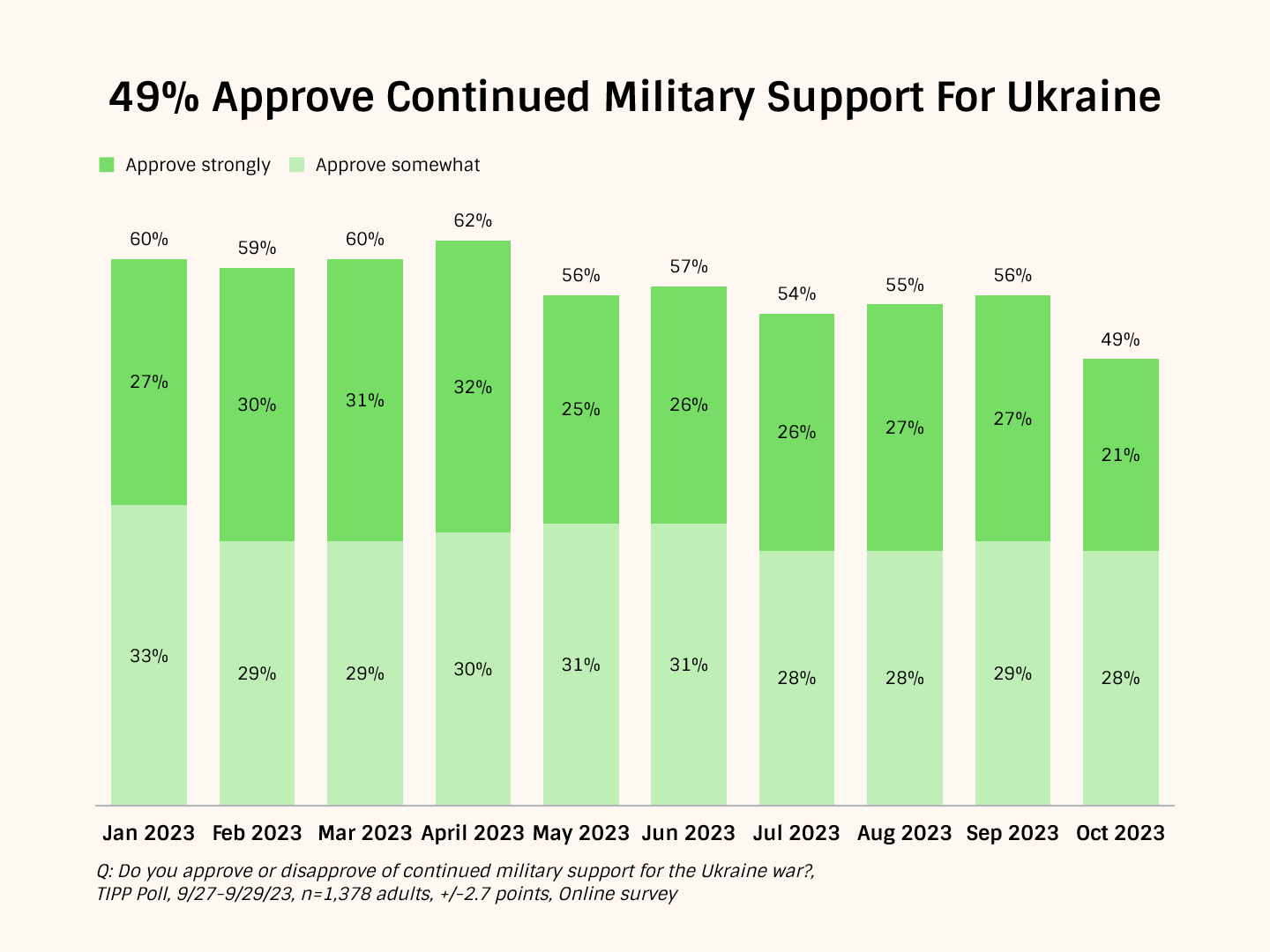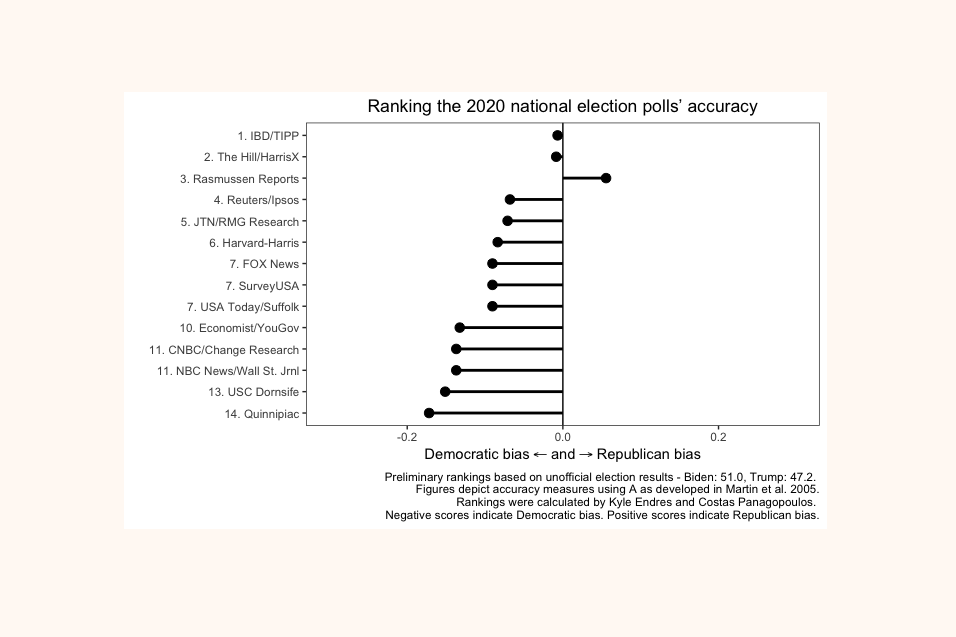With the world’s attention still riveted by Hamas’ terrorist attacks against Israel, the death and destruction of the Russia-Ukraine war, now in its 21st month, goes on. During the conflict, President Joe Biden has put the U.S. forward as a potential peace broker. Do average Americans believe his plan is working?
To find the answer, the October I&I/TIPP Poll asked voters: “How satisfied are you with the Biden administration’s efforts to find a settlement to the Russia-Ukraine conflict?”
The response, after more than $113 billion in U.S. military and humanitarian aid, is not much. Among those responding to the I&I/TIPP Poll, conducted from Sept. 27-29 among 1,378 adults, just 34% said they were either “very satisfied” (11%) or “somewhat satisfied” (23%).
More than half of respondents — 53% — described themselves as either “not very satisfied” (22%) or “not at all satisfied” (31%). Another 12% said they were “not sure.” The poll has a margin of error of +/-2.7 percentage points.
As is usually the case in these days of highly partisan politics, the major parties and independents show sharp differences over Biden’s efforts to end the Russia-Ukraine war. Democrats (61% “satisfied,” 27% “not satisfied”) strongly support Biden, while Republicans (12% “satisfied,” 83% “not satisfied) overwhelmingly reject Biden’s efforts so far.
Independents again represented a kind of middle ground between the two parties, with 29% “satisfied,” but 53% calling themselves “not satisfied.”
Indeed, among all possible responses, “not at all satisfied” was No. 1 at 31%.

Biden’s support among voters appears to be very thin. Just two groups showed a majority or plurality backing his Russia-Ukraine efforts: Blacks, at 47% “satisfied” and 38% “unsatisfied,” along with self-described liberals, at 62% “satisfied” vs. 24% “unsatisfied.” All other groups had more “dissatisfied” responses than “satisfied” ones.
Hispanics, in general, are a bit more “satisfied” at 38% than the overall average of 34%, but are still mostly “not satisfied” at 42%.
There are regional differences, as well. In the blue states of the West (37% “satisfied,” 51% “not satisfied”) and Northeast (41% “satisfied,” 48% “not satisfied”), voters on the whole consider Biden’s policies as positive. In the Midwest (29% “satisfied,” 57% “not satisfied”) and South (32% “satisfied,” 57% “not satisfied”), doubts about Biden’s policies in the Russia-Ukraine conflict are higher.
As far back as May 2021, Biden and his advisers offered to talk to Russian leader Vladimir Putin about preventing an all-out war, vowing “unwavering U.S. support for Ukraine’s sovereignty and territorial integrity in the face of Russia’s ongoing aggression.”
So far, Biden’s efforts haven’t worked. In a few months, the conflict will enter its third year, with Russia just launching yet another offensive in a war that has already claimed an estimated half a million dead or wounded, according to U.S. officials.
It’s important to note that in Congress, Biden has so far enjoyed bipartisan support, with Republicans backing most of the president’s initiatives in Ukraine.
Since Russia’s invasion in February 2022, “Ukraine has become far and away the top recipient of U.S. foreign aid. It’s the first time that a European country has held the top spot since the Harry S. Truman administration directed vast sums into rebuilding the continent through the Marshall Plan after World War II,” according to the Council on Foreign Relations.
But there are major concerns with this. While many Americans are sympathetic with Ukraine, issues of endemic corruption in President Volodymyr Zelensky’s government have been raised both here and abroad.
Former European Commission President Claude Juncker recently said Ukraine couldn’t possibly join the European Union because it is, in his words, “corrupt at all levels of society.” That is a sentiment shared by many.
A leaked memo from the Biden administration echoes that concern.
“Perceptions of high-level corruption,” according to the memo, which Politico obtained, could “undermine the Ukrainian public’s and foreign leaders’ confidence in the war-time government.”
It’s also undermining U.S. support. TIPP Insights polling data show that support for financial aid to Ukraine has fallen from 56% in March to 45% in October, while backing for military support has dropped from 62% in April to 49% this month.


Even so, Biden has been steadfast this year. Last February, while visiting Poland, the president had this to say: “Our support for Ukraine will not waver. NATO will not be divided, and we will not tire.”
But a top-secret memo that leaked not long after Biden’s comments showed far less internal optimism within the administration, predicting only “modest territorial gains” against the Russians this year. So far, despite some ground gains, that pessimistic outlook appears to be holding up.
Americans have hoped that the David vs. Goliath story of a smaller country beating a much bigger one would become a reality. But right now, Russia is in the middle of yet another offensive in Donbas, Ukraine, marked by “very heated” fighting between the two sides.
Meanwhile, tensions between the U.S. and Russia are growing, with Russian Foreign Minister Sergey Lavrov saying late last month: “You can call this whatever you want to call this, but they (the U.S. and NATO) are directly at war with us. We can call this a hybrid war, but that doesn’t change the reality.”
He added, “They are effectively engaged in hostilities with us, using the Ukrainians as fodder.”
Americans are clearly uneasy about the conflict, when it will end, and who will come out on top, as this month’s I&I/TIPP Poll demonstrates. While U.S. voters remain angry over Russia’s invasion of a neighboring country, they also remain concerned about instability in Eastern Europe as the war goes on, not to mention the ongoing cost of the war to U.S. taxpayers, which continues to grow.
I&I/TIPP publishes timely, unique, and informative data each month on topics of public interest. TIPP’s reputation for polling excellence comes from being the most accurate pollster for the past five presidential elections.
Terry Jones is an editor of Issues & Insights. His four decades of journalism experience include serving as national issues editor, economics editor, and editorial page editor for Investor’s Business Daily.
Want to dig deeper? Download crosstabs from our store for a small fee!
Our performance in 2020 for accuracy as rated by Washington Post:










